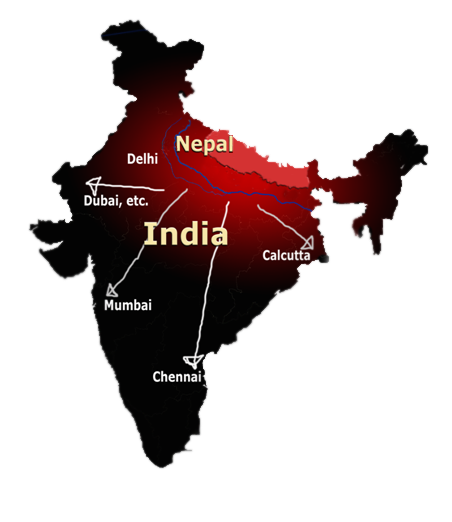ASIA’S POISONOUS HUB

India has been termed the “poisonous hub” of sex trafficking in Asia. Dense population coupled with rampant corruption contribute to the lurid business of buying and selling children.
25,000 girls are trafficked over the border from Nepal to India annually.
The problem of human trafficking is well publicized in the big cities of the world and in places like Thailand and Cambodia. But few realize that northern India, with its massive population, poverty, illiteracy and corruption is an unchallenged hot spot for traffickers.
HOW IT HAPPENS
One of the most common ways that trafficking happens in South Asia is deception. Shrewd traffickers come to simple-minded, uneducated parents in the remote villages. The traffickers masquerade as either employers, educators or matchmakers.
1. Fake schools and educational opportunities
Parents long for a better future for their children, and when the trafficker says “I’ll send your child to a good school,” parents fall for it.
2. Organ harvesting
An even more diabolical form of trafficking is organ harvesting. Children as young as six are shipped to far-away places where they are murdered and their organs taken for transplant to unwitting patients who pay high prices for a “donated” organ.
A RESCUE STORY
The banner image above shows the rescue of 33 trafficked children. Their parents were tricked into thinking the trafficker was sending them to a good school. The trafficker was in the process of making fake ID cards to send the boys to be murdered for their organs, and the girls to brothels abroad.
Thankfully, WIN's native anti-trafficking activist located the fake “children's home” where the kids were being kept, busted the door down, held a knife to the trafficker's throat and forced him to release the children. Later he was caught by the police and jailed.
WIN's native leader brought these 33 children back to their parents and from that point on, WIN has sponsored their tuition so they can attend a good school.

